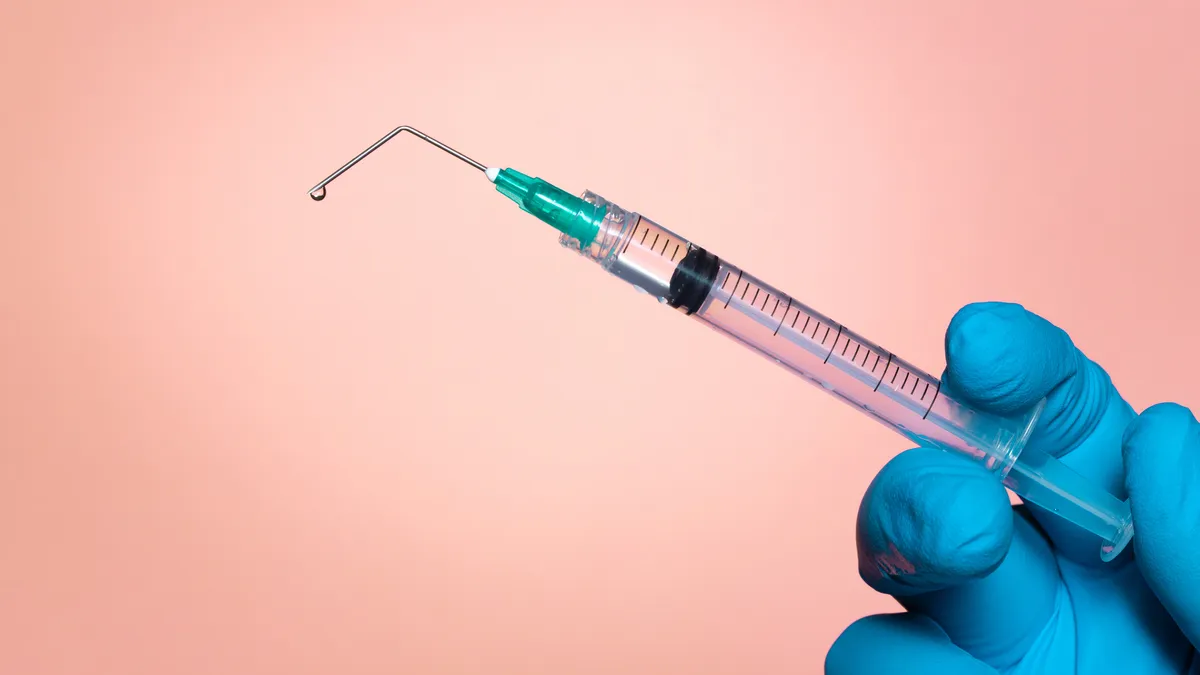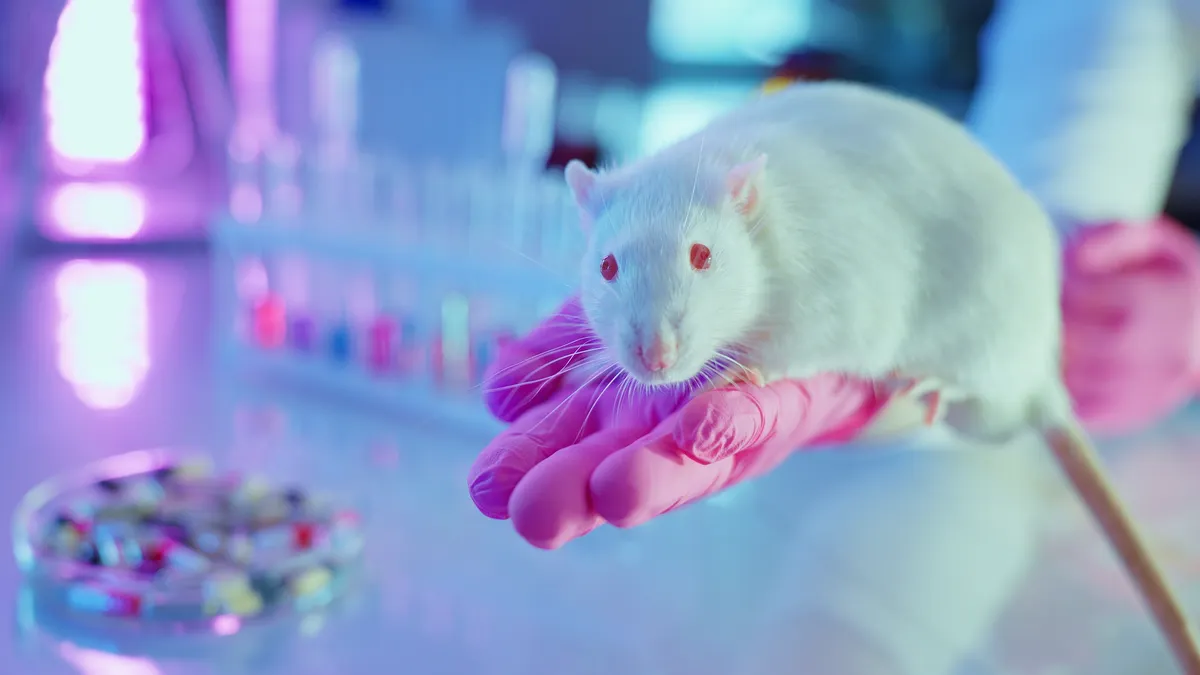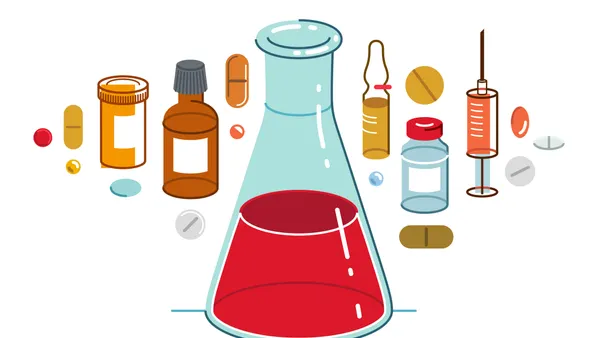Drugs most frequently fail in the clinic because they don’t work the way developers had hoped, whether due to low efficacy, unexpected toxicities or gnarly side effects, according to research into the often-cited 90% failure rate in drug R&D.
But a nuanced view of clinical failure reveals a more complicated picture.
Sometimes drugs don’t make it because developers didn’t fully understand the mechanism of action and thus failed to target the right patients. Poor trial design and not testing a medicine on patients at the most ideal point in disease progression or with the right endpoints can also lead to disappointing results.
As with many clinical setbacks, these factors came into play in three of the most impactful trial flops in recent months. Here’s a look at why these trial failures matter to the companies, the industry and patients.
ALS heartbreak — again
Developer: Amylyx Pharmaceuticals
Drug: Relyvrio
Why it matters: Perhaps the biggest clinical failure of the year so far, Amylyx Pharmaceuticals’ disappointing results from a post-approval trial for Relyvrio jolted the ALS community, the company and potentially the industry’s pipeline for ALS R&D.
Relyvrio had already been on the market since 2022 and was approved based on positive phase 2 results. But Amylyx had assured the FDA that if it failed a post-approval trial, the company would pull it from the market.
Although there had long been signs Relyvrio might ultimately flunk a large-scale trial, including efficacy concerns raised by an FDA advisory committee in 2022 and an EMA rejection, the company’s co-CEOs expressed surprise when the treatment fared no better than placebo.
Weeks after reporting the late-stage results, Amylyx stayed true to its word and announced it will no longer sell the drug — its only approved product. The company is also slashing its workforce by 70%.
A string of difficult clinical setbacks has rocked the ALS space. Yet, around 100 companies are still plugging away, according to market research, and the ALS Association reassured stakeholders there are “more than 50 potential treatments” in clinical development.
New clinical uncertainty clouds future of BTK inhibitors in MS
Developer: Merck KGaA
Drug: Evobrutinib
Why it matters: Bruton tyrosine kinase (BTK) inhibitors have shown their mettle in oncology, with drugs such as Genentech’s Rituxan reaching blockbuster heights. And hopes that the class of drugs could either slow the progression of multiple sclerosis or deliver a cure have triggered a flurry of R&D in the space and inspired deals like Sanofi’s $3.7 billion purchase of Principia Biopharma in 2020.
In December, the reality of these clinical dreams appeared to crash down when Merck KGaA announced its BTK inhibitor evobrutinib failed a pair of phase 3 trials. The studies pitted the treatment against Sanofi’s Aubagio, ultimately showing it fared no better — or worse — than the control drug at the endpoint of reducing relapsing-remitting MS.
But the results may not signal doom for other BTK inhibitor candidates from Sanofi, Roche and Novartis in phase 3 trials for MS. One Jefferies analyst wrote in a note that Merck KGaA’s failure could have been due to the trials enrolling healthier patients with fewer relapses in general. Scientists also noted that the results Merck KGaA released showed the drug’s performance with relapsing MS, but not with slowed disease progression. Because BTK inhibitors are thought to be better at crossing the blood-brain barrier than other MS treatments, some researchers are still hopeful that once the company publishes more results, the drug could ultimately demonstrate success at slowing the disease.
Schizophrenia setback puts pressure on biotech
Developer: Acadia Pharmaceuticals
Drug: Nuplazid
Why it matters: Schizophrenia has long stymied drug developers, especially when it comes to treating so-called “negative symptoms” such as social withdrawal, motivation or loss of pleasure. Acadia Pharmaceuticals had high hopes for its drug Nuplazid, which is already approved to treat Parkinson’s disease psychosis. But the company reported last month that the treatment came up short in a phase 3 trial.
The failure came after two other recent setbacks for treatments targeting negative symptoms in schizophrenia, including Minerva Neurosciences’ complete response letter from the FDA for its drug roluperidone and Sumitomo Pharma’s pair of late-stage trial misses last year.
With its expansion plans for Nuplazid currently thwarted, future growth from new approvals will rely on the success of two other lead assets. One is in mid-stage trials for Alzheimer’s disease psychosis while the other is in a phase 3 study for Prader-Willi syndrome — and that candidate was rejected by the FDA in 2021 for the same condition when it was being developed by Levo Therapeutics.
To lead the company through this tricky next phase of pipeline development, Acadia announced this month that it hired Elizabeth Thompson as executive vice president and head of R&D. Thompson, who served in the same role at Horizon Therapeutics, said she was thrilled to take the role at a “pivotal” time.












